Participate, Challenge, Community...Through Film
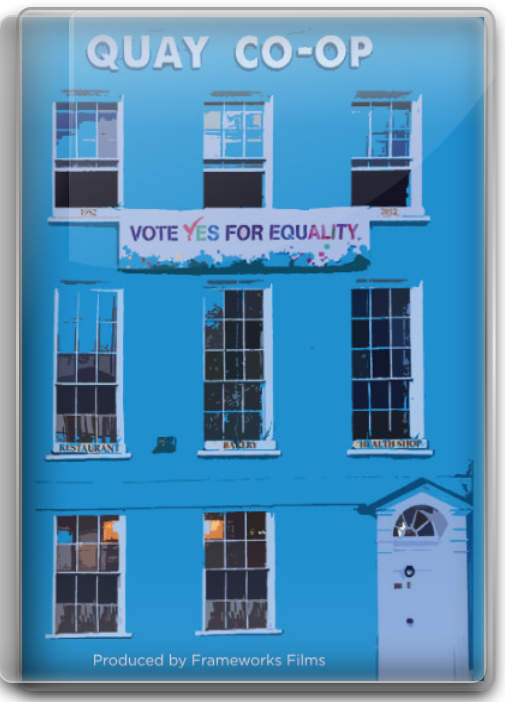
‘The Quay Co-op’ tells the story of a well-known building on Sullivan’s Quay in Cork which is known to many as an acclaimed vegetarian restaurant and organic food shop but whose interiors have charted the social, political and cultural changes in contemporary Irish society since the early 1980s. The Quay Co-op has a fascinating story to tell about the individuals, groups and organisations who wanted to see Ireland become a more progressive society in terms of women’s rights, LGBT rights and other social justice issues.
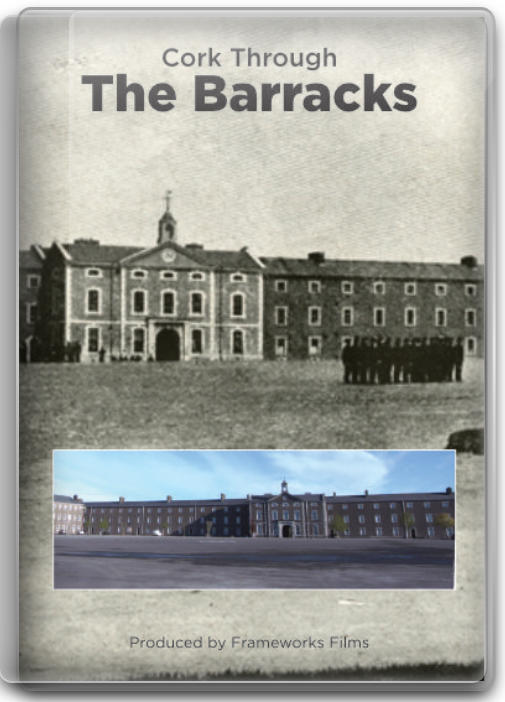
‘Cork Through The Barracks’ tells the story of Collins Barracks in Cork and what a key role it has played in all of the major historic events in Cork over the past two centuries. In particular it outlines the part that the barracks played during the revolutionary period in Cork and in the formation of a new Ireland. The documentary features interviews with serving and retired members of the Irish Defence Forces and also gives an insight into life in the barracks today.

‘Mother Jones and her Children’ tells the extraordinary story of Mary Harris (1837-1930) from Cork, Ireland who went on to become ‘the most dangerous woman in America’. Starting with her early years in Cork, the documentary then goes on to detail her life in America following the Famine, her marriage to George Jones and the birth of their four children. Despite the tragedies which seem to follow her, taking her family and her livelihood, Mary Jones becomes involved in the growing labour movement in America, defending the rights of children and workers all across the country, becoming in the process ‘Mother Jones’. Through interviews with leading experts on Mother Jones, we learn of her fearless and tireless campaign to organise workers at a time of severe labour strife and of her international legacy today.
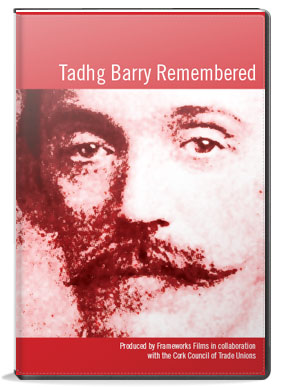
This documentary tells the story of Tadhg Barry (1881-1921), a native of Cork city, who, to date, has been largely forgotten. Tadhg Barry Remembered explores Barry’s growing involvement in labour politics and the advanced nationalist movement in Cork. It tells of his journalistic writings on GAA affairs and the labour movement. Through interviews with historians, trade union officials, the GAA and members of his family, it tells of his involvement in the Irish Volunteers, in the Irish Transport and General Worker’s Union, how he was elected to the Cork Corporation in January 1920, only to be arrested a year later at a Corporation meeting and transported to Ballykinlar internment camp in Co. Down. Finally it tells of his untimely death in 1921.
Tadhg Barry Remembered brings his story to life and also explores the historical context, which brought a young man with a passion for equality and social justice, to such a tragic end. It is an opportunity to honour his memory and to remove him from the footnotes, to his rightful place in history. Finally it examines the legacy of Tadhg Barry and the relevance of his ideas in Ireland today.
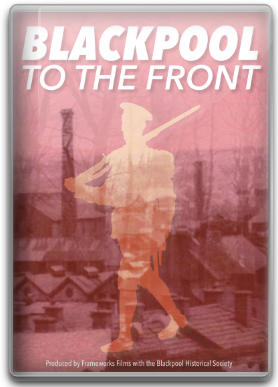
Blackpool to the Front
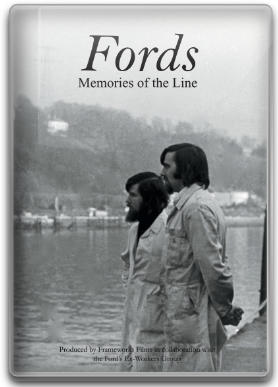
Fords - Memories of the Line DVD
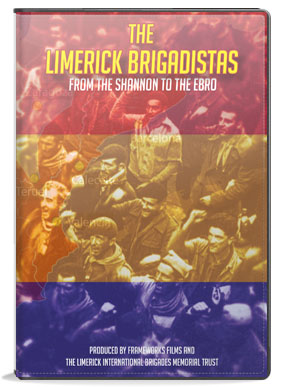
'The Limerick Brigadistas’ tells the story of six men from Limerick who went to fight fascism in the Spanish Civil War (1936-1939). Approximately 240 Irish volunteers fought with the International Brigades during the war and the documentary depicts the lives of the six men from Limerick who fought with the XV International brigade - Maurice Emmett Ryan, Jim Woulfe, Frank Ryan, Gerard Doyle, Paddy Brady and Joe Ryan. It explores what motivated these men to leave Ireland to fight in another country and what subsequently happened to them. The documentary follows members of the Limerick International Brigades Memorial Trust as they travel to Spain to find the final resting place of some of their fellow Limerick men and to look at the relevance of their story in today’s world.
Produced by Frameworks Films and The Limerick International Brigades Memorial Trust (2017). (85mins.).
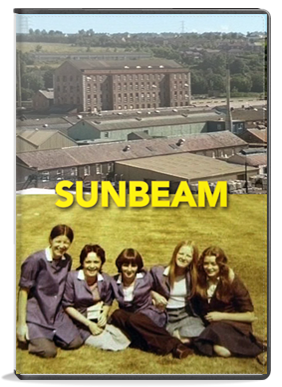
The Sunbeam Wolsey Factory was one of the biggest employers on the northside of Cork City throughout much of the 20th century.Although it finally closed its doors in the 1990s, its imposing structure was a permanent reminder of friendships formed, romances kindled and the long hours of hard work. In this short documentary, former employees recount stories of working in the Sunbeam, their memories stirred by the dramatic fire which swept through the complex in September 2003, signalling the final end of the Sunbeam. ‘Sunbeam’ was produced by Frameworks Films in collaboration with The Northside Folklore Project. (20mins.).
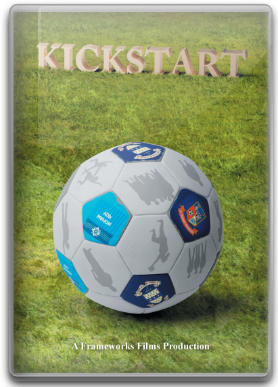
Kickstart is a documentary on football culture in Mahon on the southside of Cork city. Given its relative size it has produced an above average number of outstanding players and this documentary aims to show why. It explores the links between the local football club, the local school and the local youth project and how they all work together to nurture young players. In Kickstart we see the various options open to young players who wish to progress with their footballing career, whether that be playing at senior level in their local club or coaching or playing at a professional level nationally or internationally. The film ultimately is about one community and its passion for football.
Produced by Frameworks Films in collaboration with Mahon Community Development Project. (2017) (52 mins)
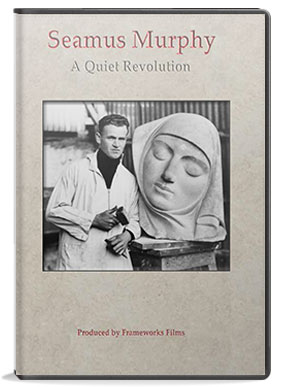
Seamus Murphy: A Quiet Revolution explores the life and career of the Irish sculptor Seamus Murphy (1907-1975). The film examines various aspects of Murphy’s practice as a craftsman and artist, placing these within national and local cultural contexts. The film also delves into the relationship between the artist and the community in which he worked, in both a historical and contemporary context. Seamus Murphy was one of the last in a centuries old line of stone carvers and this documentary honours his memory and re-examines his legacy.

Miles of Stone’ is a 52 minute documentary by Frameworks Films which explores the 5,000 year old tradition of dry stone wall building in Ireland. Its focus is the annual ‘Féile na gCloch’ which takes place on Inis Oírr, the smallest of the Aran Islands off the west coast of Ireland and which is run by Galway County Council and Comhar Caomhán Teo. Here people come from all over Ireland, Europe and further afield, to work alongside the islanders and master stone-wallers to build a stone wall on the island over the course of three days.The documentary features the participants and tutors and documents their experiences during the festival. We also see some of the other activities that take place during the festival such as letter carving and sculpting. Along the way we learn about the history of dry stone wall building in Ireland, how it is such an important part of our heritage and what is being done to ensure the skills of stone wall building are preserved and passed on to future generations.
Produced by Frameworks Films for Cork Community Television (2016). (52mins.).
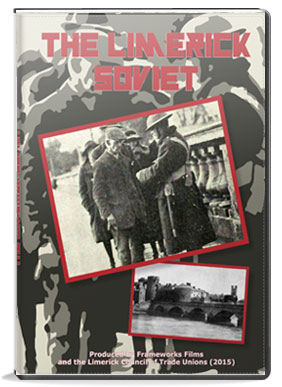
The Limerick Soviet tells the fascinating story of a revolution on the streets of Limerick in April 1919. The story begins with the death of a prominent trade unionist at police hands and the subsequent imposition of martial law in the city by the British authorities. In response the workers of the city declared a general strike and for twelve days, they took control of the city, even printing their own currency. This unique documentary examines the events leading up this dramatic event, details what happened during it and asks who were the eventual winners of what became known as the Limerick Soviet. Produced by Frameworks Films in collaboration with the Limerick Council of Trade Unions (2015). (55mins.).
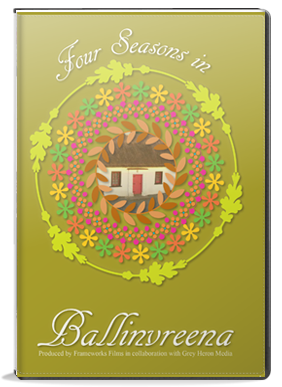
'Four Seasons in Ballinvreena' captures the richness of community life during a full year in the Ballinvreena Community Complex in rural south Co. Limerick, just over the Cork Border. Each of the four programmes in the series focuses on a different season and so the viewer experiences Winter, Spring, Summer and Autumn in Ballinvreena.
The Community Complex is located on the side of the Slievereagh Mountain and is a hotbed of activity. The programmes features interviews with members of the Ballinvreena committee and organisations, the people in the community who avail of the activities, but also captures the actual experience of communities coming together - the fun, the drama and the enthusiasm. The series highlights what one community can achieve with a dedicated group of local people who have a commitment to uphold the welcoming and friendly community spirit that has seen this isolated rural population thrive over the past 50 years. (2015). (30 mins.).
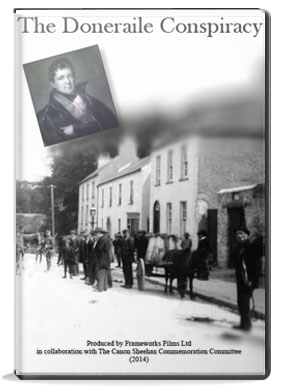
The Doneraile Conspiracy is set in 1820s Ireland, during a time of agrarian unrest, when many tenant farmers experienced extreme hardship at the hands of their landlords. The documentary tells of the Whiteboy movement, a secret oath-bound society, set up in response to this. It tells the story of how a group of farmers from Doneraile in Co. Cork were subsequently caught up in a conspiracy to kill three of the local gentry in 1829 and were put on trial for their lives. The documentary tells the story of the trial, which started off very badly for the accused men. This was until the dramatic intervention of Daniel O’Connell who had been summoned from his residence in Derrynane Co. Kerry, following an exhausting night ride on horseback by one of the accused men’s brothers. What ensued went down in legal history and justice, for some, was seen to have prevailed.The Doneraile Conspiracy was produced by Frameworks Films in collaboration with the Canon Sheehan Commemoration Committee, part of the Doneraile Heritage Group.
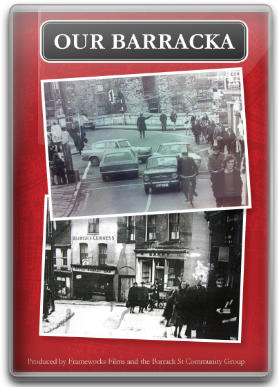
Barrack Street, or Barracka as it is commonly known by local people, is a much OUR BARRACKA loved street on the southside of Cork City, rising up steeply from the River Lee at the South Gate Bridge to the southern wards of the city. Its story contains a wealth of information about the history and heritage of Cork city from its foundation in the sixth century, to Famine times, the war of Independence and contemporary Ireland. This six-part series uncovers different aspects of the street from its social and military history to its famous Barrack Street band and provides a fascinating insight into a unique Cork street.
Produced by Frameworks Films and the Barrack St Community Group (2018) (90 mins)
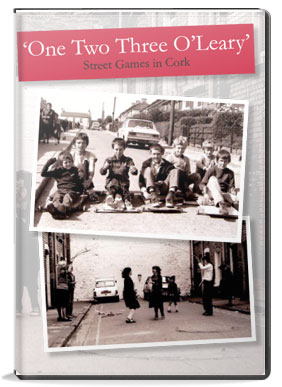
'One Two Three O’Leary’ is a half hour documentary on street games played in Cork, past and present. In the documentary, older people from the Bishopstown Senior Social Centre and the Gurranabraher Community Centre describe the games they used to play on the streets when they were growing up – games such as pickie (hopscotch), glassy alleys (marbles), the top and whip and skipping. These games are then brought to life when the older people show members of the Physically Phishy Youth Theatre, based in Graffiti Theatre Company Cork, how they used to play the games. The group then recreate some of these games on the streets of Cork and in turn the young people demonstrate some of the games they play today.
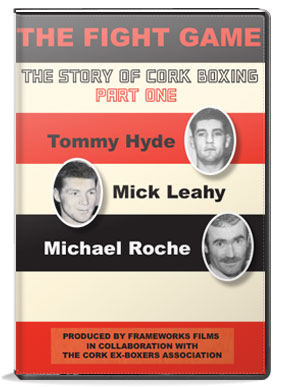
The Fight Game is a documentary on the passion behind Cork boxing. It tells the story of boxing in Cork, since the foundation of the Irish Amateur Boxing Association 100 year ago and profiles three Cork boxing legends– Tommy Hyde, Mick Leahy and Michael Roche – hailing from three different generations. The documentary has been produced by Frameworks Films in collaboration with the Cork Ex-Boxers Association (CEBA) for broadcast on Cork Community Television.
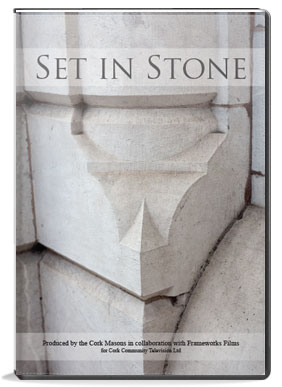
Set in Stone is a documentary celebrating the tradition of masonry in Cork. It tells the story of the Cork masons and a way of life which has now all but disappeared. Well known families of masons speak in the film about their culture, their traditions, their work and their unique language and this is combined with a rich collection of archival material from the Cork Mason’s Union. The film also explores the changes that have taken place in the building trade and how this has impacted on the traditional role of the mason.
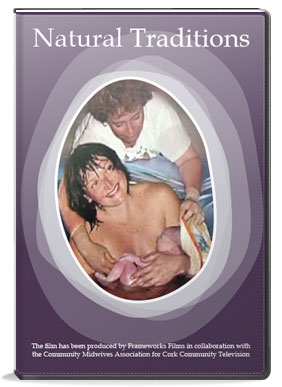
This documentary captures the tradition of midwifery in Ireland. Focusing on the area of West Cork, the film charts the progression of midwives as independent practitioners and the impact that the medicalisation of birth has had on their practice. The film highlights some of the traditions associated with midwifery that are still continued to this day. The role and the importance of the Community Midwife, particularly in rural areas, is discussed in the film. Women speak of their homebirth experience and of having a local midwifery service. Finally the film highlights the real danger that, as the number of community midwives is dwindling, the knowledge of traditional birthing and skill sharing amongst midwives will be lost forever and with it the woman’s right to choose where she gives birth.
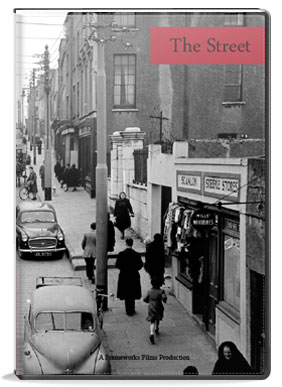
The Street is a half hour documentary on one street in Ireland – Shandon Street in Cork - which is a microcosm of Ireland at the start of the twenty-first century. Shandon Street, on the northside of Cork city, is steeped in history. The firkins of Cork butter used to be rolled down the steep street to the ships below on the river Lee, waiting to take them off to the Tsars of Russia and the West Indies. This important trading centre eventually fell into decline, but the street itself and the narrow laneways off it, maintained a strong close knit community right through to the present day. This community was then joined by a new immigrant population and the documentary also meets some of the street’s new residents, particularly those who have set up businesses there. Finally it looks at plans for the development of the street into the future.
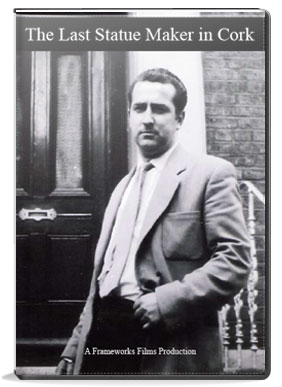
This half hour documentary tells of one man’s life and work. Maurice O’Donnell made things with his hands all his life and would happily spend all his free time doing so. From the little figures of DeValera and Mussolini that he modelled from turf as a small boy during the war years, to large statues that have been exhibited all over the world, this is the story of the last statue maker in Cork. The documentary follows his apprenticeship years through to running his own business in Cork. It also tells the stories of some of the statues themselves, including the famous ‘moving’ statue of Ballinspittle, which was one of Maurice’s creations. The film is an opportunity to honour a shy, gentle man, who sadly passed away in 2010 and to remember his great hidden talent.
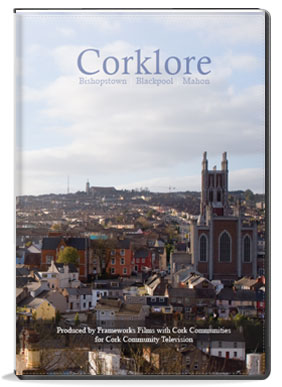
Corklore is a series of three documentaries produced for broadcast on Cork Community Television. The films explore three different areas of Cork - Bishopstown, Blackpool and Mahon - and asks how each of these areas has changed in recent years. Through personal recollections from local people and recent and archive footage, the story of each of these unique places emerges.
The films featured on this DVD are:
Bishopstown - perspectives from the past, an eye to the future (37mins) Produced with the Bishopstown Senior Social Centre (2008)
Blackpool - Old Heart, New Face (29mins) Produced with the Northside Folklore Project (2008)
A Brief History of Mahon (33mins) Produced with Mahon CDP, Mahon Community Centre & Mahon Family Resource Centre (2010)
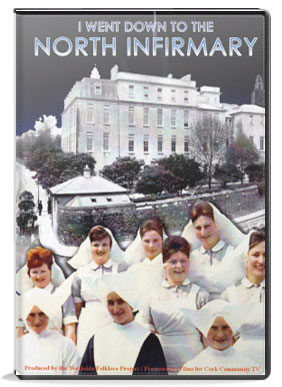
This half hour documentary explores the significance of the North Infirmary to the people of Cork through oral history interviews, historical documents, archival film footage, black & white and colour photographs. Former employees and former patients share their memories of this northside hospital, bringing to life this iconic building. The film also examines the impact of its closure on the local community. The film was produced by the Northside Folklore Project in collaboration with Frameworks Films.
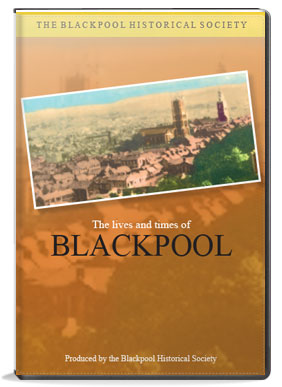
DISCOVER BLACKPOOL, one of the oldest communities in Cork City. Through the words of local people, retrace the fascinating story of ‘The Northern Village’ - the story of a thriving industrial community to one faced by change. Take a trip down the memory lanes of Blackpool to the times of the gas-lamps, the horsedrawn carts, the factory hooters and the Lido. Meet the people of Blackpool and share their stories of work and play in times gone by.
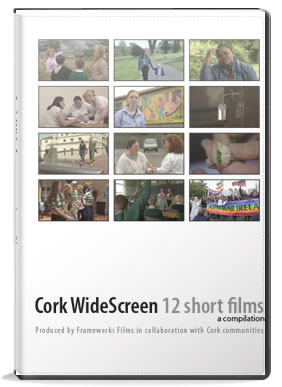
Cork WideScreen – 12 short Films was a collaboration between Frameworks Films and a range of community and voluntary groups for Cork 2005 European Capital of Culture. Its purpose was to provide an opportunity for a diverse group of people living in Cork to express their views on issues in their community and to challenge Cork’s citizens to critically reflect on their city and its future.
Who Are We Now? with Nasc The Irish Immigrant Support Centre (29 mins)
Accommodating Togher with the Togher Family Centre (20 mins)
Sunbeam with the Northside FolkloreProject (20 mins)
Making Mayfield with the Mayfield EmploymentAction Project (27 mins)
Living Together with the Social Housing Development Company (15 mins)
Educating The Class with the Community Women’s Education Initiatives (20mins)
Over Here with the Cope Foundation Mallow and the Brothers of Charity (Southern Services) Caritas Training Centre (17 mins)
School Rules with the Gurranabraher/Churchfield Outreach Project (15 mins)
Out and About with the Cork Gay Community Development Company (21 mins)
Straight-Talking with the Traveller Visibility Group (24 mins)
The Campaigners with the Cork Anti-War Campaign (26 mins)
From Mahon To Warsaw with the Mahon Community Development Project (25 mins)
© Frameworksfilms.com 2025
© Frameworksfilms.com 2025